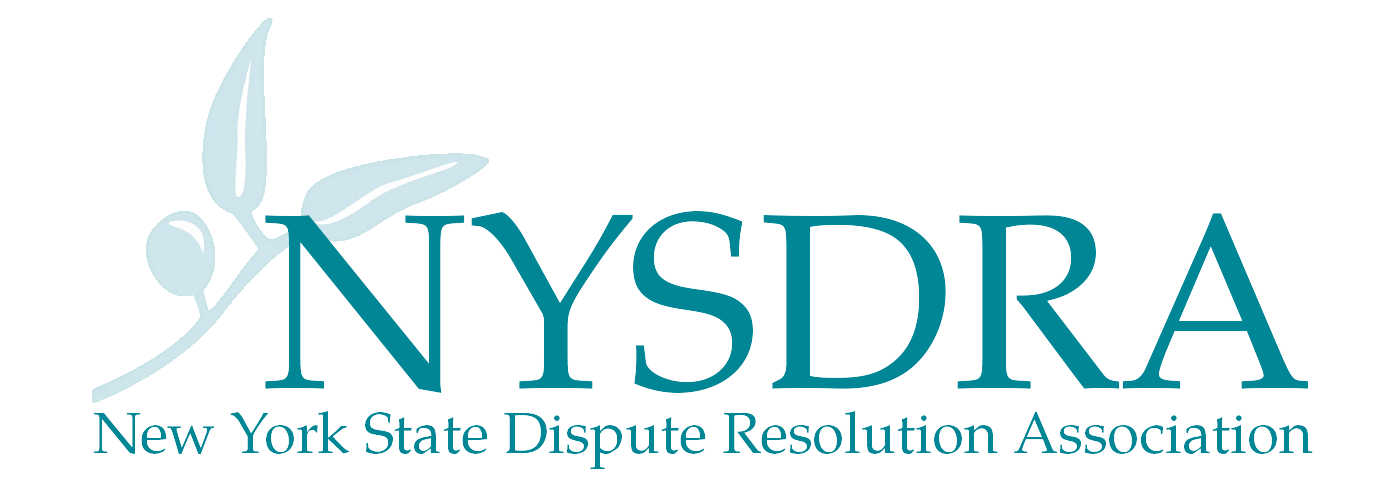Free Mediation in New York City
Free Mediation in New York City
Friday, March 21, 2014
Wall Street Journal
By Anne Kadet
It's nearly a cliché: In New York, city of overpriced everything, you can get the most amazing stuff free of charge. We've got free Fridays at MoMA, free kayaking at the Downtown Boathouse, free lunch with the Hare Krishnas—yada, yada, yada. But recently, I heard a new one: A pal got his family squabble resolved through free mediation at something called the New York Peace Institute.
Free mediation? The going rate for formal mediation is worse than therapy—$250 an hour or more. But when I called the Peace Institute, CEO Brad Heckman confirmed my buddy's account: Whether you're squabbling with a tenant, your ex-wife or the exterminator, you can stop by the institute's Financial District office for a confidential session with your personal King Solomon.
There's almost no case it won't take. Roommates fighting over the dishes, bizarre love triangles, a co-worker stealing ideas—the institute's mediators see it all. And the solutions are often surprising. Mr. Heckman fondly recalls two co-op owners who solved their noise problem by swapping apartments.
The program has a 70% success rate—meaning both parties agree to a solution. That sure beats the courtroom, where at least one party is guaranteed to leave mad while the lawyers go home rich.
Mr. Heckman connected me with one client, a Brooklyn gallery owner (the institute keeps identities of participants anonymous) who admits to ignoring complaints about his noisy events. He thought his new arts center was a huge plus for the community and couldn't understand why the neighbors didn't appreciate his wonderful contribution.
His angry neighbors were also a bit unreasonable, insisting that their commercially zoned block maintain a state of paradisal tranquility. "I was acting like a 12-year-old," says the gallery owner, "and they were acting like 13-year-olds."
After months of complaints, drama and police visits, the whole gang was referred to the institute by a community affairs officer. Both parties say tensions ran high at the start of the four-hour meeting. But the mediators gave everyone uninterrupted talking time and repeated their statements, allowing each side to hear the information from a neutral party.
The atmosphere softened. The neighbors learned about the gallery's mission—it wasn't just a party space. The gallery owner agreed to install sound-proof windows and hire security. Two years later, they're swapping holiday gifts.
Not every case is a winner. I spoke with two residents in a Harlem co-op who are fighting over a barking dog. The upstairs resident, a sales rep, admits that her 30-pound mutt has his lively moments, especially when a friend's pooch comes over to play at night. But he certainly doesn't bark in the morning—that's when she meditates! "What my neighbor is complaining about is picayune crap," she says.
Her downstairs neighbor, an actor, says the situation is constant and unbearable: "I have two dogs overhead, freaking out, banging the furniture and howling like wolves."
The co-op board sent them to mediation, but to no avail. The sales rep says the session merely convinced her that her neighbor is impossible to please. The actor says he may have to move.
But here's the odd part: They're both pleased with their experience at the institute, if only because they both believe the session gave them the opportunity to prove that their neighbor is crazy. This reaction isn't uncommon, says Mr. Heckman. In fact, he says there's little correlation between client satisfaction and case outcome: "This is the only place where someone is just going to listen and not judge you. It's almost magical."
So who are these magical mediators? Volunteers. The nonprofit Peace Institute, with its staff of 15, is largely funded by the courts—it's designed to relieve a clogged legal system. But the joint couldn't operate without its army of 450 pro bono mediators who pay for their own training.
And what a crew. Yes, there's the expected moonlighting social workers and "recovering attorneys," along with teachers, cabbies and artists. But this is New York, so you might get your case mediated by a professional hostage negotiator, U.N. ombudsman or retired peacekeeper.
It's a tough job—especially for mediators accepting criminal cases referred by the courts. Mediator Claudia Maffettone says she's been presented with cases and stories "beyond anything you can imagine." But she finds even the most outrageous acts can be understood, if not justified.
If this sounds like a fun chance to play Judge Judy, think again. Mediators don't issue orders, or even offer solutions. The job is to extract a broader understanding of the situation that helps participants generate their own fix. "If you're thinking of a solution, you're not mediating," goes the saying.
What mediators do enjoy is a front-row seat at the theater of human experience. "People get angry, they cry, they go through the whole gamut of emotions, and you are living through it with them," says Ms. Maffettone.
Despite the technique's success rate, Mr. Heckman says mediation hasn't caught on. The institute takes 5,000 cases a year but has room for plenty more. The problem? Litigious Americans love their courtroom fantasies: "People imagine a scenario where you give this impassioned statement and the jury is reduced to tears and the judge bangs the gavel and victory is had," he says.
The 33-year-old program recently rebranded in hopes of raising its profile. It avoided Zen colors and cliché logos like doves and bridges. The new brand is "passionate and fearless," he says. "We want to offer a safe space where people can have a confrontation."
Visiting the empty conference rooms, with their tissue boxes, candy bowls and water carafes, I almost wished I had some nasty personal dispute to drag in for some free mediation. Of course, this being New York, it shouldn't be too hard to get something going....
Read the article online here.
Originally posted March 21, 2014 8:48 p.m. ET.
